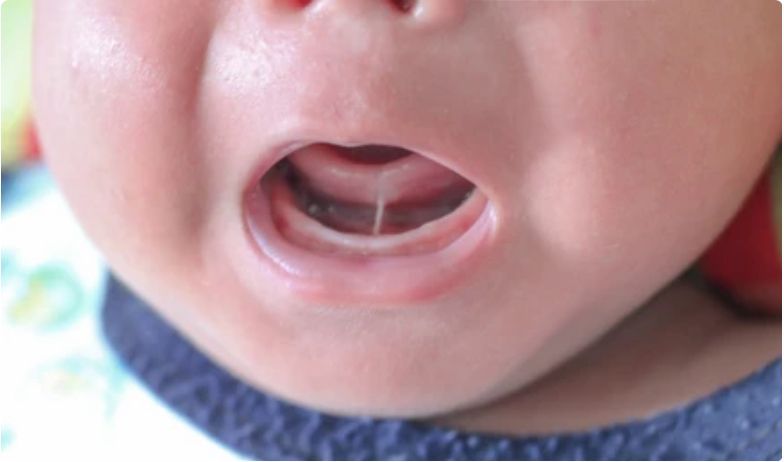Caring for Your Child with an Eating Disorder
Eating disorders are complex mental health conditions that affect a person’s relationship with food and body image. Eating disorders are estimated to affect 1 in 11 Americans at some time in their lifetime. Awareness of overweight, desire to be thin, and fear of weight gain start in elementary school-aged children. Eating disorders typically appear during the teen years, and are the third most common chronic condition in adolescents, after obesity and asthma. Eating disorders include anorexia nervosa, bulimia nervosa, binge eating disorder, avoidant/restrictive food intake disorders, and orthorexia (see below). Eating disorders frequently coexist with other illnesses, such as depression, anxiety, substance abuse, autism, attention deficit hyperactivity disorder (ADHD) and obsessive compulsive disorder (OCD). The nutritional deprivation seen with eating disorders can result in severe weight loss, electrolyte imbalance, growth retardation, delayed puberty, loss of menses (amenorrhea), decrease in bone mineral density (osteopenia), iron-deficiency anemia, lethargy, thyroid fatigue, seizures, and cognitive impairment. When severe, eating disorders can result in life-threatening cardiovascular instability from bradycardia (slow heart rate), hypotension (low blood pressure), hypothermia (low body temperature), decreased left ventricular mass and volumes, and heart arrhythmias. Significant mental health issues occur in people with eating disorders, including high rates of depression, substance abuse, and risk of suicide. Increased incidence of infertility, osteoporosis, and autoimmune conditions are longer-term concerns. Despite worrisome complications, the prognosis for eating disorders in the pediatric population is encouraging, as eating disorders have a recovery rate of about 75%.
Eating disorders have four main patterns:
Anorexia nervosa (AN) is characterized by a fear of weight gain or drive for thinness, and body dysmorphia, a distorted perception of looking fat or feeling heavy despite a normal body weight, resulting in the dangerous restriction of caloric intake and significantly low body weight/weight loss. Females make up close to 90% of adolescents with AN. There is often a family history of eating disorders and a personal drive for perfection.- Bulimia nervosa (BN) is also marked by the fear of weight gain or obsession with slimming down, though characterized by the binging of large amounts of food, followed by guilt and shame, and compensatory efforts to rid the body of the food and prevent weight gain (induced vomiting, laxative abuse, inappropriate use of enemas and diuretics, fasting, and/or excessive exercise). Unlike AN, people with bulemia are often of normal weight, though they share a similarly distorted body image.
- Binge eating disorder (BED) is characterized by recurrent episodes of binge eating, the consumption of large amounts of food in one sitting, while feeling powerless to stop. BED is associated with physical discomfort and emotional distress. Unlike BN, there are no attempts to “make up” for the binges with vomiting etc. BED is almost as common in males and females.
- Avoidant/restrictive food intake disorders (ARFID) are characterized by a disturbance of eating or feeding, in the absence of a desire to be thin or lose weight. They may be triggered by a choking/vomiting episode with fear of recurrence, an aversion to food based on sensory issues (smell, taste, texture), a fear of allergic reaction to foods, profound stress, etc. The eating disturbance in ARFID can lead to a decreased variety and volume of food intake, causing inadequate energy/nutritional intake, failure to grow or gain weight appropriately, and/or psychosocial impairment. ARFID may begin in infancy and last into adulthood, and they comprise up to 20% of those who seek treatment for eating disorders. As opposed to AN, children with ARFID are more likely to be male and younger (ages 4-11yr).
In addition, there is an eating disorder known as orthorexia, characterized by an obsession with eating pure/clean/organic/healthy food, in the absence of a desire to lose weight, which nevertheless results in increasingly restrictive food consumption, and may result in significant weight loss and/or malnutrition, impaired socialization, and emotional distress.
You may be wondering what causes eating disorders. Researchers are finding that eating disorders result from a complex interplay of genetic, biological, psychological and social factors. Clearly in the United States, the stigma of overweight is propelled through social media, the entertainment industry, peer pressure, and even health care providers addressing issues of overweight and obesity. Weight talk within the family and dieting itself are known to predispose to eating disorders. Eating disorders are common in young women, though affect people of all genders, races, ethnicities, ages, and socioeconomic conditions. Studies show that gay, lesbian, bisexual and trans adolescents have significantly higher rates of disordered eating that their heterosexual peers. Adolescents with chronic health conditions requiring dietary control (e.g., diabetes, cystic fibrosis, inflammatory bowel disease) may also be at increased risk for eating disorders. Individuals who participate in activities for whom weight has a significant impact on performance (e.g., wrestlers, ballet dancers, divers, runners, skaters, gymnasts etc.) are certainly more vulnerable to eating disorders. In fact, the historic term “female athlete triad” refers to female competitive athletes with inadequate caloric intake, menstrual dysfunction, and low bone mineral density with increased risk for stress fractures (with or without disordered eating). Survivors of family abuse and other childhood traumas are at risk for eating disorders.
Recognizing an eating disorder generally begins with the family or pediatrician, who may note excess talk about eating healthy, reading food labels, skipping meals or restrictive eating, body image dissatisfaction, social isolation, excessive exercise, weight loss, failure to grow adequately, loss of menstrual periods, use of dietary supplements or herbal products for weight loss, leaving during or immediately after meals to use the bathroom, depression, constipation, episodes of lightheadedness, fatigue, muscle cramping, and/or cognitive dysfunction (decrease in attention, processing speed, memory, etc.). The examination may reveal a significant drop or fluctuation in weight, slow growth, signs of dehydration (dry lips, dry skin), reduction in body temperature and heart rate, purple color to the hands and feet from poor circulation, and thinning of the hair. Additional findings specific to BN include salivary gland enlargement, calluses on the knuckles from self-induced vomiting, along with abrasions at the palate, eroded dental enamel from stomach acid in vomit, dental cavities, and inflamed gums.
The child or adolescent presenting with weight loss or growth failure may be screened for inflammatory bowel disease, esophagitis, celiac disease, thyroid disease, diabetes mellitus, depression, substance abuse, and malignancy. Medical evaluation at the time of diagnosis of an eating disorder often includes a complete blood count; urinalysis; metabolic panel assessing glucose, electrolytes, minerals like calcium and phosphorus, and liver function; iron studies; vitamin D; thyroid function testing; electrocardiogram (EKG). Bone density may be indicated for those with prolonged amenorrhea (6-12 months).
The goals of treatment of eating disorders include re-establishing a healthy relationship to food, restoring adequate nutrition, bringing weight to a healthy level, reducing excessive exercise, and stopping unhealthy eating patterns (binging, purging, restricting, etc). Treatments plans are tailored to the individual child or adolescent, as each situation is unique. Treatment of eating disorders requires a multidisciplinary team approach, including your pediatrician or pediatric nurse practitioner, a dietician/nutritionist specializing in eating disorders, a psychologist specializing in eating disorders, a psychiatrist to address medication management of depression and anxiety, an endocrinologist to manage low estrogen and hormonal imbalance, along with occupational or speech therapists who specialize in feeding, intensive outpatient programs, and inpatient/residential centers for the treatment of severe eating disorders.
Though most patients can be treated in an outpatient setting, hospitalization may be required for nutritional support for any of these eating disorders, depending upon the degree of weight loss, starvation, nutritional deprivation, and its metabolic/physiological consequences (bradycardia, hypotension, electrolyte imbalance, EKG changes, cardiovascular instability, etc). Rehydration, restoring electrolyte balance, and beginning the process of refeeding are essential. A short term feeding tube (passed from the nose to the stomach), or a long term gastrostomy tube (placed surgically into the stomach) may be required in some cases, to directly supply nutrition through the gut. Rarely, intravenous nutrition (hyperalimentation or hyperal) is also required.
Psychotherapy is essential to the treatment of eating disorders in children and adolescents, both to address the primary eating disorder, and to address associated mental health disorders (depression, anxiety, OCD, gender dysphoria). Cognitive behavioral therapy (CBT), family-based therapy (FBT), and exposure therapy are the modalities currently in use. The Maudsley approach, which empowers parents with the responsibility of feeding their child, is an effective management strategy in treatment teens with AN. Pharmacotherapy with selective seratonin reuptake inhibitors (SSRIs) like fluoxetine (Prozac) may be indicated to reduce anxiety and depressive symptoms in patients with eating disorders, allowing them to focus on the work of therapy and recovery.
Although there are no sure ways to prevent eating disorders, some strategies that can empower children and adolescents towards healthy-eating behaviors include having family meals that encourage a balanced diet and positive relationships with food; cultivating and reinforcing a positive self-image and healthy body image in yourself and your child, and avoiding weight shaming; talking to your child and your pediatrician about any concerning signs of pre-occupation with strict eating, weight, or body habitus.
We are here for you. If you have any indication that your child may be struggling with an eating disorder, reach out by phone, on the portal, or schedule an appointment to come see us in the office. Here are some national resources and local community partners that serve our patients with eating disorders and their families:
-ANAD: National Association of Anorexia Nervosa and Associated Disorders 312-262-6897 hello@ANAD.org
-NEDA: National Eating Disorders Association helpline 800-931-2237
Crisis text NEDA to 741741 nationaleatingdisorders.org
-EDC: Eating Disorders Coalition 202-543-9570 eatingdisorderscoalition.org and eatingdisorderhope.com
-F.E.A.S.T. Families Empowered and Supporting Treatment of Eating Disorders 855-50-FEAST info@feast-ed.org
-ERC: Eating Recovery Center 866-438-8604 eatingrecoverycenter.com
-Pediatric Feeding Institute of South Florida (Boca) 561-571-7557 pediatricfeedinginstitutefl.com
-Psychologists/Therapists who specialize in eating disorders:
Barbara Capp (Plantation) 954-370-0966
Alina Gastesi-deArmas (Weston) 954-384-9373
Hartiett Beitscher Campbell (Ft. Lauderdale) 954-829-5055
Allie Butters (Boca) 561-257-4202
Roy Ehrlichman (Palm Beach Gardens) 561-626-8070
Carol Flaster (Davie) 954-862-1482
Nicolle Arbelaez Lopez (Weston) 954-804-5144 www.DrNicolle.com
Sarah Ravin (Maudsley Family Based Treatment Miami) 305-668-5755
-Nutritionists who specialize in eating disorders:
Jessica Gallego 954-385-4696
Christie Caggiani (Delray) 561-278-6033
Roni Julien (Miami) 786-326-3262
Alyssa Mitola (Ft. Lauderdale) 754-702-7868
Jodi Krumholz (Boca) 954-280-3065
-Eating Disorders Support Groups:
Dr. Nicolle 954-804-5144
Joanna Kandel Alliance for Eating Disorder Awareness (WPB) 561-841-0900
FEAST Families Empowered and Supporting Treatment of E.D. 1-855-50FEAST feast-ed.org
Jamie Osborne Renfrew Center (Boca) email support@therenfrewcenter.com
Mary Lerner Milestones (Cooper City) 954-272-0806
-Residential Treatment Centers for Eating Disorders:
Renfrew Center for Eating Disorders (Coconut Creek) 1-800-736-3739
Milestones in Recovery (Cooper City, 18yr +) 1-800-347-2364
Oliver-Pyatt Center (Miami) 305-240-9903
Veritas Colaborative (various locations outside Florida) 855-607-1445
ViaMar Health (WPB) 561-293-4677
Eating Recovery Center Dr. Ovidio Bermudez Denver (303) 731-8200
Canopy Cove ED Treatment Center Tallahassee 888-245-6555








PLANTATION
8430 West Broward Blvd Ste 300
Plantation, FL 33324
(954)-473-8588 (fax)
Monday - Fridays
8 am - 5 pm
(Closed for Lunch 12pm-1:30pm)
Saturday
8 am - 12 pm
Sundays & Holidays
Morning Urgent Hours Available For Coral Springs, Only After 8 am
TAMARAC
7489 North University Drive
Tamarac, FL 33321
(954)-722-4888 (fax)
Monday - Friday
8 am - 5 pm
(Closed for Lunch 12pm-1:30pm)
Saturday
8 am - 12pm
Sundays & Holidays
Morning Urgent Hours Available For Coral Springs, Only After 8 am
CORAL SPRINGS
5697 Coral Ridge Dr.
Coral Springs, FL 33076
(954) 510-4800 (fax)
Monday - Friday
8 am - 5 pm
(Closed for Lunch 12pm-1:30pm)
Saturday
8 am - 12pm
Sundays & Holidays
Morning Urgent Hours Available For Coral Springs, Only After 8 am
Miramar
1951 SW 172nd Avenue Ste 200
Miramar, FL 33029
(954) 722-4888 (fax)
Monday & Friday
8 am - 12pm
Saturday
8 am - 12pm
Sundays & Holidays
Morning Urgent Hours Available For Coral Springs, Only After 8 am
© 2025 Children's Medical Association (CMA). All rights reserved.
Designed by Brandiket.com



















